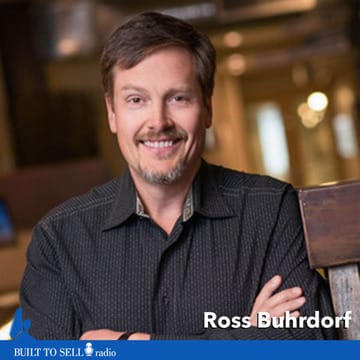About this episode
From the acquirer to the seller, Ross Buhrdorf bought more than 25 companies at HomeAway, then sold his business to Expedia for a whopping $3.9 billion. Now, he’s sharing his secrets – from both sides.
To read a transcript of this episode, click here.
According to Ross Buhrdorf , “If you get disrupted by Airbnb, that means you must have been the leader.” And he’s right.
Buhrdorf was a co-founder and CTO for HomeAway, a pioneer in the online vacation rental industry. While competitor Airbnb made their mark across urban areas, HomeAway focused on luxury vacation destinations, building an acquisition strategy around finding the best of the marketplace across the globe to help expedite their business model.
After acquiring over 25 companies, building value and going public, HomeAway was ready to sell – and they had one big fish in mind: Expedia.
Find out why Buhrdorf says HomeAway’s inventory played a crucial role in landing what ends up being Expedia’s most profitable acquisition.
In this episode, you’ll also learn:
- From an acquirer’s POV:
- The characteristics Buhrdorf found most attractive in looking at businesses to acquire
- The red flags that would break off a deal in its tracks
- From a seller’s POV:
- Why Buhrdorf and his co-owners were motivated to sell HomeAway
- The strategic reasons why Expedia offered a whopping $3.9 billion for the acquisition
- What it takes to be a ‘unicorn’ in your industry
The key to both HomeAway’s acquisitions and sale is Monopoly Control. Whether it was access to a new group of customers, or properties in an untapped location, Buhrdorf and his co-owners looked for ways to stand out. Monopoly Control is explored in Module 6 of The Value Builder System™. Start for free right now by getting your Value Builder Score now.
Check out our article on Secrets To Attracting Strategic Acquirers In Today’s Market.

About Our Guest
Ross Burhdorf runs ZenBusiness. He previously was the founding CTO for HomeAway (NASDAQ:AWAY). His technology built the company from a startup, through the IPO, to its recent acquisition by Expedia (NASDAQ: EXPE) for $3.9B. In his more than 30 years as a technology leader, entrepreneur and c-level corporate executive in both public and private companies, Ross helps transform the way consumers interact with technology.


